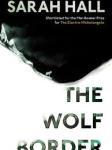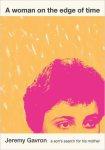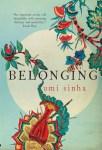I am woefully behind in my reviewing, and it occurred to me that I had enough posts lined up in prospect to take me to the end of the year. And so, I thought I had better get my best books in as I like to do it midway through December. By this stage, I usually know what they are. I’ve read a lot of good books this year, a lot of interesting ones, but few real crackers. So, the list comprises eleven of the very best and a handful of honorable mentions.
Best Books
The Wolf Border by Sarah Hall. Written with cool, vivid fluidity, this is a novel of deceptive serenity about big themes – the drives of nature, the demands of politics, the unexpected dynamics of change. An unusual and original story, narrated in a wonderfully intriguing voice, it was a book I just wanted to keep on and on reading, loving its display of Hall’s sheer natural talent.
A Want of Kindness by Joanne Limburg. This evocation of the Stuart dynasty in the time leading up to the reign of Queen Anne is an astonishing feat of authenticity. Including many of the real letters written by Anne, the transition into fiction is seamless and boldly, beautifully done. Absolutely exquisite writing and brilliant characterisation; a piece of literary time travel.
The Paying Guests by Sarah Waters. Waters is such an adept at mixing up genres in her literary historical fiction, and this time the post-war novel meets the romance meets the sensational crime story. The anxiety of her heroines sucks you into the plot and although I spent the best part of the novel fearing what would happen next, I couldn’t put the book down.
Golden Age by Jane Smiley. This is the third and final novel in her Hundred Years’ Trilogy. I’ve really enjoyed every one of them, but this closing volume really worked its magic on me, bringing together all the disparate threads in her huge family saga around the recent disasters in finance and the harbingers of disaster in the environment. Smiley is such an outstanding writer – effortless grace in her sentences, steel blades in her mind. A chilling but necessary work of fiction.
Hotel Andromeda by Gabriel Josipovici. Only Josipovici could bring together the esoteric installation art of Joseph Cornell and the conflict in Chechnya, and bring out such depth of meaning about the scarcely credible extremes of human behavior. Josipovici can still do things with seemingly ordinary dialog that other authors can only dream about, and any book that actually wonders why we can’t just Make Art Not War is going to be high on my list at the moment. He is such a profound writer.
This Boy’s Life by Tobias Wolff. What do you call this – an autobiographical fiction? Based more than loosely on Wolff’s own life, this bildungsroman of miscreant and misguided boyhood is just so very funny and so very sad all at once. Every other sentence you want to turn around and read out loud to someone. At its dark heart there’s a moral about the fact that while we want to get away with things, it’s terrifically bad for us and all kinds of distressing when we do. A book I hope to read again some day.
Five Came Back; A Story of Hollywood and the Second World War by Mark Harris. To think I began reading this book not sure if I’d get through its 500 pages, when in fact it turned into one of the most heart-in-the-mouth reading experiences of the year! Harris follows the fortunes of five top Hollywood directors across the course of the Second World War. The battles they had with the authorities, the enemy, and themselves over how truthful their representations could or should be give the most unexpectedly intriguing perspective on the war. Incredibly moving and insightful.
Lying by Lauren Slater. You’ll either love this or it’ll drive you mad. Slater’s account of growing up with an unusual form of epilepsy is constantly put in doubt by her propensity (or the side effect of the illness) to confabulate. Constantly slippery, constantly questioning and yet written in such brilliant, muscular, vivid prose, this memoir puts the idea of truth-in-narrative on trial and gives a unique judgment.
One Life by Kate Grenville. Finding after her mother’s death the empty notebooks in which she planned to write her life history, Grenville decides to take on the task herself. Written in a voice that could be her mother’s, she imaginatively reconstructs the hardships of life in early twentieth century Australia up until the moment Kate herself is born. An exquisite piece of social history, showing us just how much women’s expectations have changed over the past two generations, it is also a moving tribute to a strong and loving mother.
Things I Didn’t Want To Know by Deborah Levy. I never managed to review this slim volume, although it was one of the very best of the best books for me in 2015. Sometimes you can be so in awe of a book and have so little idea of how the author could have managed to write it, that you don’t know what to say. It is the story of Levy’s coming-to-writing, a sort of reflective response to Orwell’s essay, Why I Write. It focuses on three points in her life – her childhood in South Africa with her father imprisoned for his work with the ANC, her early, gawky adolescence in exile in England, and the contemporary moment in Mallorca where she has come to reflect. The writing is extraordinary. I still don’t know what to say about it, except that it’s outstanding.
A Woman on the Edge of Time by Jeremy Gavron. You can scroll down the page and find my recent review of this memoir about the author’s mother, a woman who apparently had it all but who committed suicide in a manner reminiscent of Sylvia Plath. Gavron hunts down the truth of her circumstances and her motivations in an engaging and moving testimony, pieced together from fragments of accounts collected from friends and family. A beautiful book.
So that’s my best of the year list. Honorable mentions in fiction must go to
Frances and Bernard by Carlene Bauer, an exquisite epistolary novel set in the 50s detailing a reluctant romance between a poet and a novelist,
Belonging by Umi Sinha, a gripping story of three generations caught up in the rights and wrongs of imperialism in India,
The Spectre of Alexander Wolf by Gaito Gazdanov, the haunting story of two Russian men, bound together by a shared act of random violence,
Frenchman’s Creek by Daphne du Maurier, for its sheer good-natured fun-loving romantic spirit,
Still Life with Breadcrumbs by Anna Quindlen, which tells the tale of two people hoping for a second chance at life (and getting it, in a completely cockles-of-the-heart–warming way),
Astonish Me by Maggie Shipstead, a ballet novel based on Mikhail Baryshnikov’s defection to America, and
The Case of the Hail Mary Celeste, a delightfully rip-roaring tale of lost nuns and the Great Western Railway in a mash-up of boy’s own and private detective fiction.
Honorable mentions in non-fiction go to
The Prison Book Club by Ann Walmsley for being everything you might hope for from that title,
The Nearest Thing to Life by James Wood, four essays that are part literary critique, part memoir and wholly engaging, and
Janice Galloway’s two volumes of memoir,
This Is Not About Me and
All Made Up, for her lyrical, witty, painful, truthful, just plain brilliant voice.










